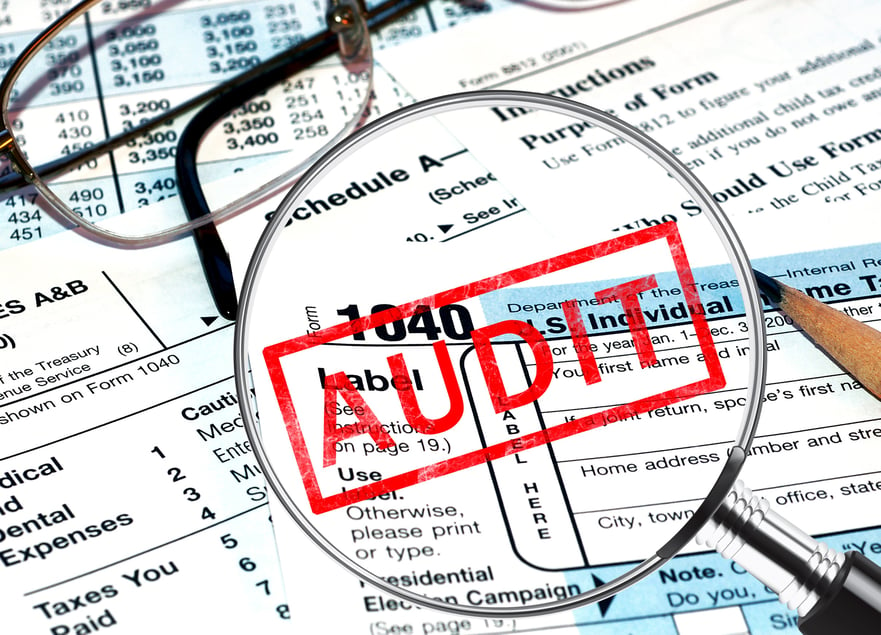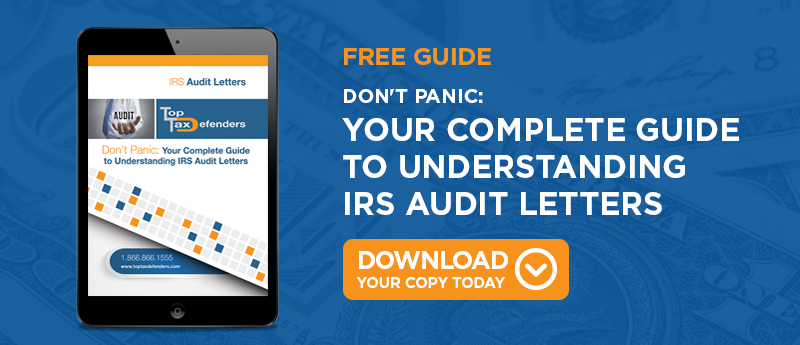
Each year's tax season always brings with it the possibility of the IRS auditing your return. Even if you believe you have filed your taxes correctly and rightfully paid what you owed, you still may find your tax returns singled out for review. You can prepare yourself now for this minute but possible chance by understanding how the IRS uses data to select returns for auditing.
Missing Income Information
The IRS receives the same income earning statements that you receive in the mail. It knows how much you made and from what sources that income was gained each year. It also uses the income earning statements to make sure you filed your return correctly.
As it reviews your return during processing, the IRS looks to make sure you reported all of your earned income and that the numbers on your return match those found on your W-2s and 1099s. If the numbers are wrong or if the income is omitted, the IRS may send you a bill for the rightful tax amount that you owe. However, it also may audit you to find out why you left out the income or made the mistake when filing your return.
You can avoid being audited for missing income information by reviewing your return before you submit it. You should make sure all of the math adds up correctly and corresponds with the income listed on your earning statements.
Skewed Income Information for Your Profession
The IRS also knows how much you typically should earn based on the profession in which you are working. If it suspects that you under reported your income, it may compare your return to those filed by others who work in the same field as you. The IRS may then audit your return to find out why you reported a lower income than what is average for your job.
It also may audit you if you claim deductions that exceed those normally claimed for your profession. Even if your return is correct and not fraudulent, you still may be audited just so the IRS can verify the information on your return. You also may be asked to submit proof of the deductions.
Related Auditing
You also may find yourself being audited because of the actions of another person with whom you are associated. For example, if the IRS has found that one of your business partners under reported his or her income, it may audit your return just to make sure you filed your return correctly. It also may use your return to prove the legitimacy or fraud of the business partner's return.
Likewise, if a parent makes a mistake filing his or her return, the IRS may audit the returns of the parent's children or spouse if the spouse filed separately. The erroneous or fraudulent return of one person can increase the chances of his or her family members, business partners, or other associates being audited by the IRS.
Random Selection
Finally, the IRS may randomly select your return for auditing. No data may have been used to set your return apart from others. It may have been chosen purely by coincidence for further review.
In fact, the IRS does actually have a system behind its random selection of auditing returns. However, it refuses to reveal what the finer points of the system are to prevent tax evaders from defrauding it. Further, there is no way for taxpayers to avoid being randomly selected for auditing.
However, you may breeze through a random audit of your return by:
- making sure you file your taxes on time each year
- paying what you owe to the IRS
- claiming all deductions to which you are rightfully entitled
- hiring a tax professional to prepare your return and assist you in an audit if you are selected
If your return is in good order and you have paid your tax debt, chances are the audit will be more of a formality than an intensive review.
The IRS often uses data to identify what returns to audit each year. You can prepare your returns and lower your chances of an audit in some cases by understanding what processes the IRS uses to identify returns that may need further review.




